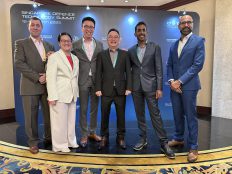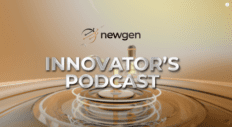By Ng Lai Yee, CEO, Temus
This article was first published in The Business Times on 26 February, 2025
Singapore celebrates 60 years of independence in 2025
—a milestone that reflects a full cycle in Chinese culture and, more pointedly, the dawn of a new era of transformation. In his Budget 2025 speech, Prime Minister Lawrence Wong framed this anniversary as a moment for courage and determination, urging Singaporeans to embrace change and navigate an increasingly complex world together.
As we charge into this new cycle of nation-building, two powerful forces will shape Singapore’s next era: technology and people. The rapid advancement of artificial intelligence (AI) is accelerating productivity and innovation at an unprecedented scale, but at the same time, social intelligence—the ability of humans to interact, collaborate, and make sense of these changes—risks falling behind.
The promise of AI is vast, but its potential will only be fully realised through human agency and intervention. Societies that harness technology for productive ends will thrive, while those that fail to adapt may see widening inequalities. Nowhere is this clearer than in our economy. Singapore’s GDP per capita is among the highest in the world, yet the distribution of economic value produced is uneven. As of 2020, only about 50% of every $100 generated went to labour. This is significantly lower than the approximately 60% labour share in OECD economies.
This reflects a broader trend: workers must capture a greater share of economic gains in the AI age. Singapore’s next chapter hinges on reimagining how technology is woven into work, business, and society, similar to how bold economic and technological shifts defined its early years.
To enable this transformation, three key shifts must happen—each reinforced by the strategies outlined in Budget 2025.
1. Human-Machine Interaction Must Be at the Core of Business Strategy
Singapore’s competitiveness hinges on how well enterprises integrate AI into their operations for real and measurable impact—not just adopting AI for the sake of it. Budget 2025 outlined the Enterprise Compute Initiative (ECI) as a key enabler of this transformation, ensuring businesses, including SMEs, can harness high-performance computing resources to power AI solutions.
The Government is doubling down on enterprise AI adoption, but success will be determined by how effectively organisations redesign work processes around AI-human collaboration.
A prime example comes from the financial sector, where banks are deploying generative AI for enhanced fraud detection and personalised financial planning—not to replace human advisors, but to augment their insights.
Industries that leverage AI as a co-pilot—rather than a replacement—will create more productive and resilient businesses.
2. AI and Tech Must Enable a Human-Centred Economy
With S$3 billion added to the National Productivity Fund (NPF) to accelerate AI and cloud adoption and S$1 billion allocated to the Private Credit Growth Fund to support high-growth enterprises, Budget 2025 presents a significant opportunity for companies in Singapore to harness these investments—not just to drive efficiency, but to build businesses that create meaningful human and societal impact.
The challenge now is for enterprises to move beyond the adoption of tech for efficiency or AI for automation alone and instead leverage these resources to become companies of good—organisations that use tech tools to solve real-world challenges, drive sustainability, and create shared economic value.
One example is Health Kaki, a GenAI-powered digital health companion that aims to transform resident health engagement. Designed to support Singapore’s Healthier SG initiative, Synapxe, Temus and other health organisations in Singapore are collaborating to develop Health Kaki into an accessible, personalised health and lifestyle guide to better community health outcomes. With the help of AI-driven insights, Health Kaki would represent a major push for the Quantified Self movement—empowering individuals from diverse communities to monitor lifestyle habits, receive real-time feedback, and access personalised health recommendations that fosters greater self-awareness and proactive health management.
This shift reinforces a broader transformation in tech and AI’s role: it is no longer just a tool for automation and efficiency but a driver of sustainable and responsible growth. That means ensuring that our workforce is equipped to harness AI for human-centered problem-solving across different sectors.
3. Revolutionising Human Capital Building for the AI Age
For Singapore to develop more homegrown enterprises that integrate AI for both commercial success and societal good, the focus cannot be solely on technology—we must invest in people.
Budget 2025 underscores the need for deep, enterprise-led workforce transformation. While Singapore’s SkillsFuture initiative has been a cornerstone of workforce training since 2015—offering more incentives for workers to pursue lifelong learning—the next leap forward requires employers to take the lead in shaping talent for AI and digital roles.
To accelerate this shift, we continue to expand the Step IT Up (SIU) programme, a “hire, train, place” initiative that has already converted over 59 individuals from non-IT backgrounds into full-time tech professionals, who now make up almost 20% of our staff in Singapore. This programme aligns with Singapore’s broader push to integrate mid-career professionals into AI and tech jobs.
Notably, SIU moves beyond traditional training and upskilling models to a “hire, train, and place” approach, ensuring that workers acquire industry-relevant skills with a guaranteed job at the end of training. This reduces the risk of skill mismatches and strengthens tech talent pipelines by embedding training within employment.
At the same time, ensuring inclusivity in AI adoption is crucial. Singapore’s National AI Strategy 2.0 (NAIS 2.0) highlights the importance of developing a diverse, AI-ready workforce, ensuring that the benefits of AI transformation are accessible across different segments of society. With opportunities for the democratisation of tech offered by AI, local businesses, beyond traditional deep-tech firms, can more readily apply AI to real-world challenges.
A key initiative in this direction is SG Women In Tech (SGWIT) “˜Relaunch‘, designed to encourage and advocate more pathways for women re-entering the tech industry. More than just a workforce initiative, SGWIT embodies a broader push towards inclusivity—creating a strong community where women can upskill, connect, and support one another in AI and digital roles.
As Singapore moves towards a human-centred AI economy, inclusivity must be at the heart of our workforce transformation.
Singapore’s Next Leap: A Collaborative Approach to AI Readiness
Budget 2025 lays the foundation for an AI-driven economy where technology and people progress together.
AI is but a tool shaped by how we choose to use it. Singapore can build a future where AI benefits both the economy and society by adopting AI-driven business transformation, prioritizing human-centered economic growth, and focusing on talent development.
As we step into Singapore’s next cycle of growth, the challenge is clear: the future is not just about being AI-ready—it is about being human-focused in an AI world.




